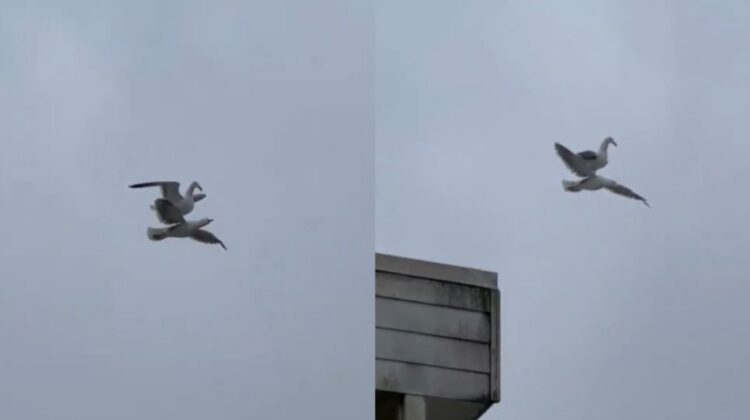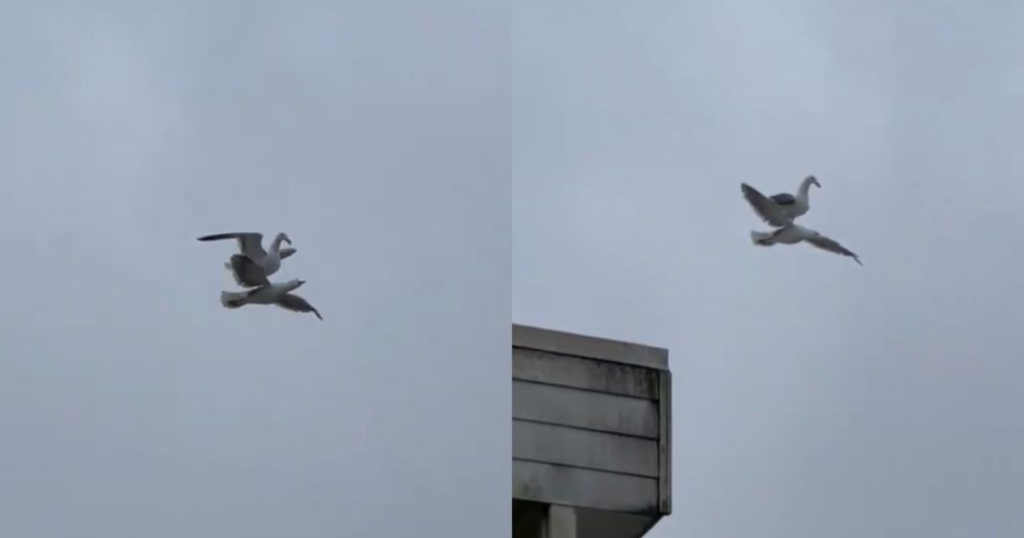
In the picturesque town of Bath, England, something unusual caught the eye of aspiring wildlife filmmaker Matthew Spivack during a visit with his wife in early May. Among the seagulls that populate the area, he witnessed a curious sight – two seagulls appearing to be engaged in an awkward balancing act. Little did he know that this seemingly strange scene was actually a glimpse into the unique mating ritual of these coastal birds.

Initially, Spivack believed he was capturing two birds grooming each other, a common behavior among these social creatures. However, as he continued to observe, he noticed something intriguing – the male seagull hopped onto the female’s back. This behavior, while peculiar to many, serves an essential purpose in the seagulls’ reproductive process.
Unlike many other bird species, most male seagulls lack a penis. Instead, they store their sperm in an internal chamber known as the cloaca, a multifunctional opening that serves as an exit for reproductive, digestive, and urinary systems. Female birds also have cloacas, with the organ housing their ovaries.

When it’s time to mate, the male seagull discharges his sperm into the female’s cloaca. The sperm will eventually fertilize her eggs, leading to the next generation of these coastal dwellers. This process often requires a delicate balancing act from both partners, showcasing the coordination and cooperation that ensures the success of their mating efforts.
Seagulls are known for their monogamous nature, often forming lasting bonds with their partners. They frequently return to the same locations to mate, establishing a strong connection to their habitats.

However, the proliferation of seagulls in Bath has sparked some controversy. A recent report highlighted that these birds carry harmful bacteria, raising concerns about public health. Some residents have called for culling the seagull population to mitigate these risks.
Furthermore, research published last year revealed that seagulls in both England and China were capable of carrying a superbug resistant to even the most potent antibiotics, underscoring the importance of monitoring their impact on public health and the environment.

Despite occasional discord between townspeople and the seagulls, these coastal birds have found their niche in Bath. Spivack, reflecting on the situation, acknowledged that seagulls occupy any available space they can find in the town, becoming a constant presence in the community.
As visitors and residents of Bath continue to enjoy the beauty and charm of this coastal town, they can marvel at the fascinating natural behaviors of the seagulls that share their environment. The awkward balancing act of seagull mating is just one of the many wonders that nature has to offer, reminding us of the intricate and intriguing intricacies of the animal kingdom.

Leave a Reply